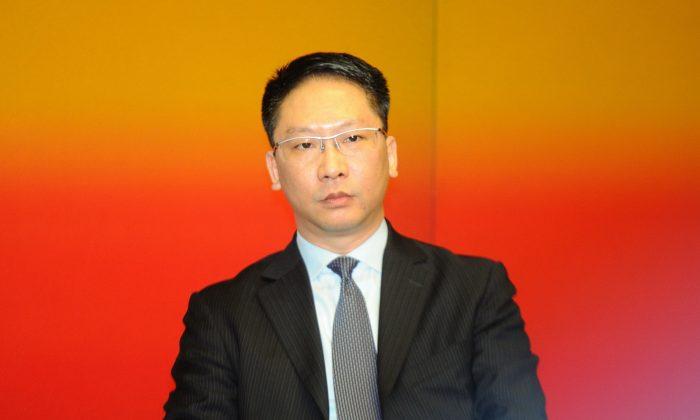Hong Kong—The Justice Minister of Hong Kong, Rimsky Yuen Kwok-keung, recently asked Hong Kong people to accept an imperfect method of election, telling them that universal suffrage might threaten Hong Kong’s No. 1 position in the Index of Economic Freedom.
This claim seemed “odd” and “strange” to Wall Street Journal Asia editor Joseph Sternberg, who wrote an editorial on Feb. 5 about Yuen’s position.
The Index of Economic Freedom is published each year by the Heritage Foundation in the United States and the Wall Street Journal, and Hong Kong has topped the list for years. Sternberg pointed out in his article that Yuen does not seem to understand the stance of the Wall Street Journal and the Heritage Foundation, which has given unrelenting support to democracy and political and economic freedom over the years.
A proposal has been made to Hong Kong’s Legislative Council (LegCo) to give universal suffrage to Hong Kong by 2017. Yuen is one of three members of a task force that is currently in charge of consulting the community about this proposal as well as the 2016 LegCo election methods.
Yuen said in an interview that he wished the pan-democrats in Hong Kong would accept an imperfect constitutional reform, and he suggested that they accept a Chief Executive candidate nominated by a committee supporting mainland China. Yuen insinuated that Hong Kong’s reputation will be at stake if the pan-democrats get their way.
Yuen added that he was concerned because the international community is watching Hong Kong. Sternberg said Yuen made a mistake by hinting that democracy would affect Hong Kong’s reputation.
Sternberg said that when Yuen quoted last month’s Index of Economic Freedom, he implied that The Heritage Foundation and Wall Street Journal were warning that political unrest would affect Hong Kong’s ranking.
“That interpretation seemed odd,” Sternberg wrote in his article. He asked Index lead author Terry Miller for clarification, and the answer was the opposite of what Yuen seemed to think.
Miller wrote in his e-mail reply to Sternberg, “Hong Kong stands at a critical moment, both politically and economically. Risks abound on all sides.”
“Any backtracking by the government on its promises to deliver democratic reforms and universal suffrage would undermine the societal trust that is the foundation of the rule of law, and likely lead to political instability that would have a negative impact on Hong Kong’s reputation as an open economy in which it is both safe and profitable to do business,” Miller wrote.
“Such backtracking by government could even call into question the durability of the Basic Law and the continuing validity of the concept of one nation, two systems,” Miller added.
Miller, the director of The Heritage Foundation’s Center for International Trade and Economics and a former U.S. ambassador, told Sternberg the real threat comes from the failure of Yuen and his colleagues to deliver meaningful electoral reform. He urged Hong Kong politicians not to “succumb to the temptation to accede to populist demands for greater social or welfare spending in an effort to increase political support from the subsidized groups.”
Sternberg commented, “Hong Kong doesn’t need fewer elections. It needs more Ronald Reagans.”
“Lack of true democracy is creating an environment that is as bad for prosperity as the government’s defenders claim democracy would be,” Sternberg wrote. “Meanwhile, the breakdown of societal trust of which Mr. Miller warns already is happening.”
As an example, he mentioned the widespread anger and protests late last year over the Hong Kong government’s refusal to grant a broadcast license to the popular Hong Kong Television Network.
“Hong Kongers have become so suspicious of their government that this license move sparked concerns about censorship, drawing tens of thousands of protesters into the streets,” Sternberg wrote.
“Foreign businesses worried about economic freedom should worry about democratic politics,” Sternberg added. “But they should worry far more about an unelected government with no obvious mandate making major decisions on the basis of vague perceptions about its short-term popularity.”
Translated by J.K. Lu. Written in English by Sally Appert.
Hong Kong Justice Minister’s Claim “Odd,” Says Wall Street Journal
The Justice Minister of Hong Kong, Rimsky Yuen Kwok-keung, recently asked Hong Kong people to accept an imperfect method of election, telling them that universal suffrage might threaten Hong Kong’s No. 1 position in the Index of Economic Freedom.

By Lin Yuanshan
2/19/2014
Updated: 2/19/2014